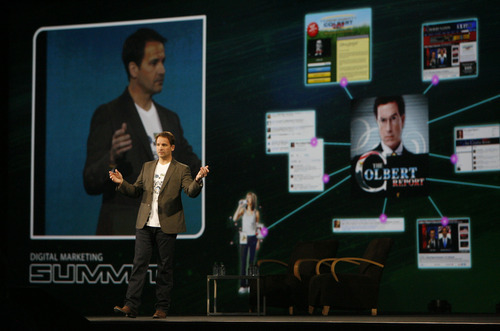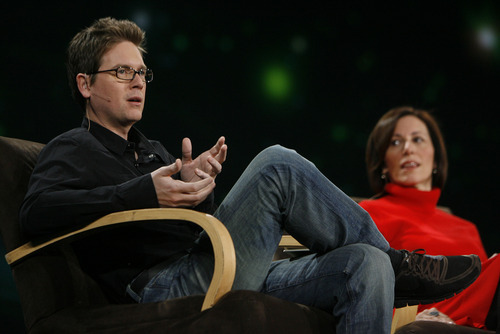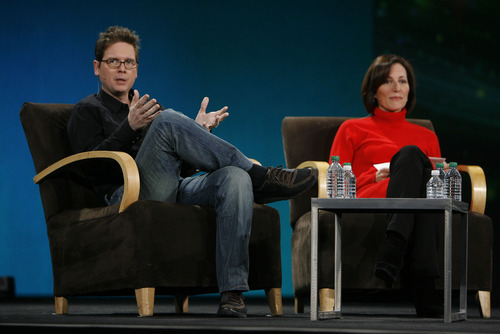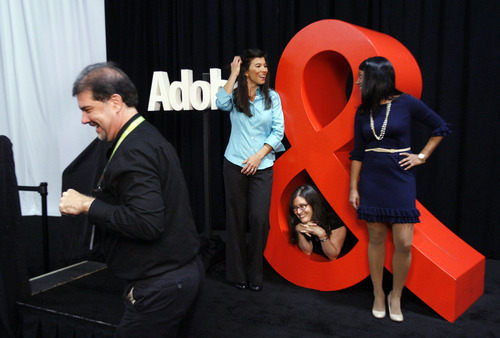This is an archived article that was published on sltrib.com in 2012, and information in the article may be outdated. It is provided only for personal research purposes and may not be reprinted.
The co-founder of Twitter told a Salt Lake City audience Thursday that social media can be used to make people smarter but users are still evolving their "digital selves," particularly on issues of personal privacy.
"There's a difference between getting more information and getting smarter," said Biz Stone, who six years ago helped found Twitter, a site on which people exchange information in messages of no more than 140 characters. The 6-year-old company has 140 million active users with 340 million Tweets a day.
Stone appeared at a question-and-answer session at Adobe Systems' annual digital marketing conference, held this year at the Calvin L. Rampton Salt Palace Convention Center.
The conference is aimed at showcasing and educating users of Adobe's products to allow companies to measure and analyze the use of websites and, increasingly, social media such as Twitter and Facebook.
Stone said he saw two ways of measuring people's engagement with online resources, including the "number of hours people's eyeballs are glued to a website, and that includes sitting in a chair eating Cheetos." The other way is to see how people are using tools to help them make decisions during the day about where they eat, how they shop or other issues of their lives.
"I think that [latter] level of engagement is such a healthier level," Stone said. "So my preference is people are checking their phones and checking Twitter and to find out what's happening across the world ... and then just put it back in their pocket."
John Mellor, Adobe vice president of business development, said before Stone's appearance that an Adobe study showed the rising use of what he called "subnetworks" of social media. Beyond Facebook, the dominant social-media form, other groups were forming around particular interests, such as Yelp for restaurants, hotels, shopping and other areas of interest. Those sites are becoming important to online chatter about businesses, he said.
"They allow consumers to define themselves and communicate with other consumers," said Mellor.
Stone also predicted the merging of websites, social media and technologies available on tablet computers, confessing that "in my heart, I'm a Web person and I think the true promise of the Internet has yet to be revealed."
Stone also said:
• Privacy issues on how much information social-media users will provide and how it will be used will be worked out over the next five years or so.
• Businesses need to show "vulnerability" in their online presence, asking followers what they want and interacting with them instead of providing only a monologue.
• His current big project at a company he founded called The Obvious Corp. is "secret."
Twitter: @TomHarveySltrib









